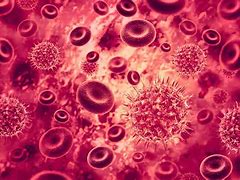Folate is important for the production and repair of the DNA and other genetic materials, and it is vital for cell division. It helps the body make healthy new red blood cells, and in an absence of this, an individual may develop folate deficiency anaemia. This nutrient is also important in pregnant women, as it prevents neural tube defects, such as spina bifida and anencephaly (a baby born without parts of the brain and skull). In order to prevent these, the Center for Disease Control recommends that women of childbearing age and pregnant women take a daily supplementation of 400mcg of Folic acid. Considering that it may be difficult to get 400 mcg of folate through diet alone, this nutrient may be acquired through the intake of a vitamin with folic acid in it, eating fortified foods, or a combination of the two, in addition to eating a balanced diet rich in naturally derived folate.
Folic acid and vitamin B12 are directly involved in the adequate synthesis and maturation of blood cells (particularly red blood cells) from blood forming stem cells. This can be seen in individuals with megaloblastic anaemia, a blood formation disorder that emanates from folic acid or vitamin B12 deficiency, and is characterised by a collection of abnormally large and immature red blood cells in the bone marrow, due to an impaired ability of the DNA to synthesise and appropriately divide.
Folate deficiency has been associated with abnormalities in chromosomes. Several studies have concluded that individuals with germinal alterations, when compared to individuals without alteration in genes are more susceptible to low plasma folic acid-induced genomic changes. The chances of developing certain cancers, including leukaemia in children, can be influenced by an alteration in the metabolic and physical composition of folates by already existing variations in the DNA sequence among individuals.
Leukaemia, a cancer of blood forming tissues that hinder the body’s ability to fight infections, is characterised by the presence of acquired chromosomal rearrangements that are confined to the diseased bone marrow cells. Previous studies carried out on certain individuals that developed leukaemia during childhood showed the presence of genetic reorganisation in those historic samples, indicating that the initiating genetic events leading to leukaemia were already present in-utero.
Particularly, a large number of studies on humans have shown that higher folate plasma values by a higher consumption through diet are associated with lower risk of developing colon polyps and tumours. Several studies have also shown that certain biological and nutritional compounds such as phytochemicals and vitamins have been utilised in an attempt to curb or reverse the high rise in cancer cases.
While most studies on the risk of leukaemia and other blood-related malignancies have focused on the role of a single nutrient such as Folic acid, rather than a wider understanding of the individual’s diet as a whole, there is a strong possibility that several factors and interactions between different nutrients are accountable for the development of the disease.
source: Medicalworldnigeria

 Adequate nutrition represents one of the most important elements for preventing many pathological conditions, including cancer. Diet during pregnancy and childhood can influence a lot of metabolic and physiological functions, and can determine an individual’s susceptibility to, and the development of diseases later in life.
Adequate nutrition represents one of the most important elements for preventing many pathological conditions, including cancer. Diet during pregnancy and childhood can influence a lot of metabolic and physiological functions, and can determine an individual’s susceptibility to, and the development of diseases later in life.




